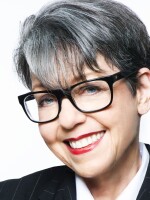In a tailored black pantsuit and crisp blue shirt, Julianne Sohn could be any office worker in downtown Los Angeles. Only the bulge made by the gun on her right hip gives her away as a police officer. She used to be a Marine. She went into the Corps' officer training program right out of college, though she knew that being bisexual might make that complicated.
"Serving my country was a huge honor, and I was willing to sacrifice my personal life to go into the Marine Corps," she says.
President Obama hopes he can prod Congress into repealing the "don't ask, don't tell" policy, which bans openly gay people from serving in the military. And it's prompting many gay service members to step forward and tell their stories.
Thousands have been discharged from the military because of their sexual orientation.
Eight Years Of Duty
In the Marines, Sohn served four years on active duty, rising to the rank of captain, and four years in the reserves. That included a tour of duty as a public affairs officer in Iraq escorting journalists around Fallujah. Now, seated on a bench in the plaza in front of Los Angeles Police Department headquarters, Sohn explains that the don't ask, don't tell policy was different in practice than on paper.
"I was out to some of my close friends ... these are lieutenants and captains ... but a lot of them didn't care," she says. "All that really matters is getting the job done."
So she eventually became comfortable enough to begin talking to college groups about serving under don't ask, don't tell. She figures it was a news clip about one of those talks that led to her forced resignation. But she told her military lawyer that she would not sign the standard document, which states that the person does not want to be in the service.
"Because I want to be a Marine," she says. "And I'm going to write whatever I please, because at this point, there's no point in lying about anything."
Talking about this is still painful enough to bring tears.
"I wrote my own letter basically stating that, 'Yes, I want to stay in the Marine Corps, and if the Marine Corps finds a public affairs officer — who actually has a master's in journalism and has done a tour of duty in Iraq and who graduated at the top of her class at LAPD — as someone who's not qualified, then so be it,' " she says.
He Joined To Fight The Idea He Was Gay
But job qualifications aren't the issue. In 2008, when Anthony Loverde left the Air Force, the military lost a staff sergeant who was an expert at calibrating weapons systems and had been in charge of cargo on 60 flights into Iraq. Then, after seven years in the Air Force, he went into his commander's office and "outed" himself.

"I just didn't believe any longer that it was appropriate for me to continue to tap dance around the subject," he says. "And I thought I was being dishonest to my crew members."
It took Loverde some time to get to that point in his life. When he'd enlisted at age 20, he was fighting the idea that he was gay.
"I actually thought the military would teach me so much discipline that I'd be able to control myself and not be gay," he says.
It was the many gay service members he met after enlisting in the Air Force who helped him find his sexual identity.
"So when I entered I thought it was going to help me stay on the straight path. But, in essence, it just made me more gay," he says, laughing.
When Loverde left the Air Force, he was hired immediately by military contractor KBR. He was sent to Iraq, Afghanistan and Washington, D.C., to do roughly the same job he'd had in the service.
"Everyone was very welcoming to me being openly gay," he says. "And this time, as a civilian, I didn't have to pretend, you know, and it was very liberating."
Now, Loverde's trying to find a new path in life. He's working on a master's in photography in San Francisco. His little apartment is strewn with photographic equipment and black-and-white shots of gay service members in uniform.
"I'm taking their portraits in a way that conceals their identity but shows their patriotism and service," he says.
Loverde's been intensely following the debate on the possible repeal of don't ask, don't tell taking place in Washington.
"I want to be hopeful, but I'm also a pessimistic person," he says. "Not holding my breath."
But Loverde knows exactly what he'd do if don't ask were repealed: He'd re-enlist in the Air Force without hesitation.
Copyright 2022 NPR. To see more, visit https://www.npr.org. 9(MDAzMjM2NDYzMDEyMzc1Njk5NjAxNzY3OQ001))







